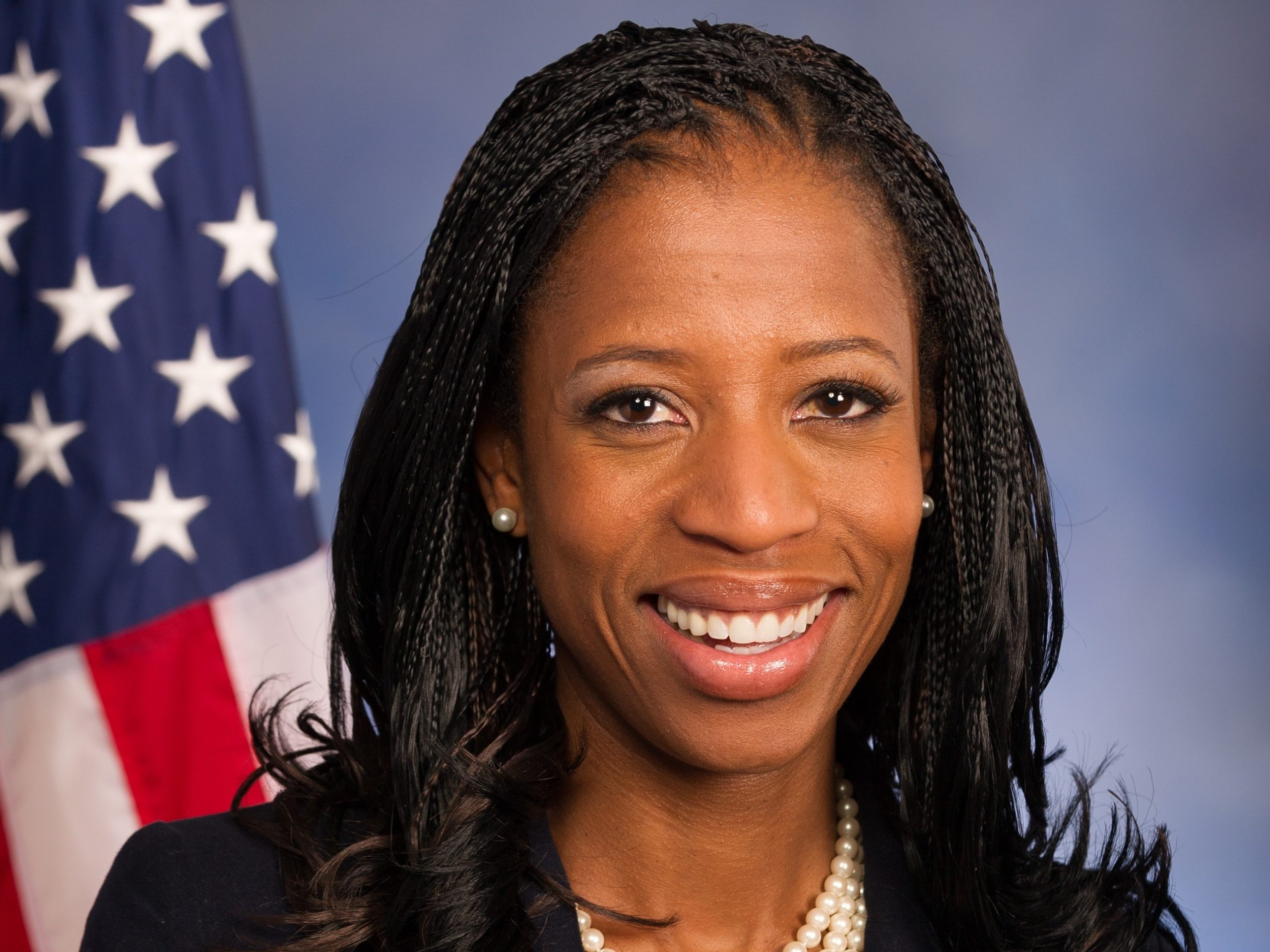
Mia Love’s path to being the first Black Republican woman in the House of Representatives began with her parents’ journey from Haiti. Escaping the notoriously cruel dictator Francois Duvalier in 1974, Love’s parents fled their home country and carved out a new life for their growing family in Brooklyn, New York. As a child, Love watched her mother work long hours as a nurse and her father hold down several jobs simultaneously. Having a front-row seat to the struggles immigrants face informed her later opinions on immigration reform, which she was able to influence from her seat in the U.S. House of Representatives.
After a career that bounced around between the fine arts, call centers, and a stint as a flight attendant, Love decided to pursue her true calling as a leader and changemaker. Her political career began with a City Council seat in Saratoga Springs, Utah. Six years later, in 2009, she became mayor of the town. She took 59% of the vote, and became the first Black mayor in the state of Utah. She fell just short of victory during her first campaign for a seat in the House, but in 2013 she found victory to the tune of 50% of the vote compared to her opponent’s 46%.
Love received the respect and support of fellow Utah Republican Mitt Romney, whom she also joined in speaking out against President Donald Trump. Both Romney and Love were vocal in their distrust and disappointment in Trump’s immigration policies as well as his attitudes towards women and minorities in general. Love turned her attention towards Venezuela in 2016, when a Mormon missionary named Josh Holt was falsely imprisoned there on weapons charges. She co-sponsored a House resolution that urged the release of political prisoners and joined forces with a team of other politicians, ultimately securing Holt’s release back to the United States.
Love left politics for broadcasting in 2018, and currently works as a correspondent for CNN. She also currently serves as a non-resident senior fellow at The United States Studies Centre at the University of Sydney.
